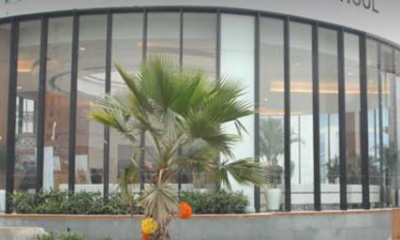News
RICS: Demand for sustainable commercial property rises in Asia Pacific, but built environment must progress on decarbonisation


New Delhi, November 14, 2022: The 2022 RICS Sustainability Report, which collated sentiment from almost 4,000 chartered surveyor contributors globally across commercial and construction sectors, shows that some improvement in the push for sustainability has been made in the past year, notably in the commercial real estate sector as demand for green buildings continues to rise.
However, the data also shows there has been little or no change in some important areas in the past 12 months. In construction, a significant share of professionals say they do not measure carbon emissions on projects.
Commercial Property: While the appetite to seek green buildings in the commercial property sector continues to rise, the change is modest, according to most respondents in the Asia Pacific region.
Looking at investors and occupiers separately, around 49% of contributors in the Asia Pacific region note that occupier demand for green/sustainable buildings has risen over the past 12 months, with 47% noting a modest rise, and 2% stating they saw a significant rise in demand. Compared globally, around 55% of respondents noted a rise in demand.
On the investment side, around 37% of survey contributors report a modest increase in investor appetite for green/sustainable buildings over the past twelve months. A further 11% suggests there has been a more significant increase in demand.
As demand for sustainable buildings continues to increase in the Asia Pacific, it is impacting both rents and prices, with a significant share of contributors seeing a market premium for sustainable buildings, and citing that non-green real estate assets are subject to a ‘brown discount’. For those buildings that aren’t classed as green or sustainable, 40% of respondents noted a reduction in rents, and just over 44% also cited a reduction in sale prices. Interestingly, just under a quarter of respondents believe this discount is up to 10%.
In another signal that people are placing more focus on sustainable property, 47% note a rise in climate risk assessments by investors on their built assets, suggesting that climate issues are now rising on the agenda and could be influencing the behaviour of key market players. This figure is lower than the global average, which sees 44% of respondents citing a modest increase in investor interest in completing climate-related risk assessments, and 13% seeing a significant rise.
Construction: Survey respondents report that Construction professionals are beginning to embrace digital tools and technologies to complete sustainability-related analysis for construction projects, predominantly to assess energy needs and costs, but they are less likely to utilise these tools to reduce embodied carbon or to measure the impact on biodiversity. 37% of respondents report that digital tools and processes are used to complete sustainability assessments on less than half or none of their projects, a figure lower than the global average of 45%.
This year’s results also show that there is much room for improvement in measuring carbon emissions. 61% of professionals state that they make no operational measurement of carbon emissions on projects, however, Asia Pacific has the largest portion of respondents citing they do measure operational carbon emissions. 43% of respondents also state that they don’t measure embodied carbon, even for those that do, less than 22% use it to select the materials they use in their project.


Ameya Gumaste, FRICS, Executive Director & Country Head, Linesight India Said: “It is time that we investigate both emitted and embodied carbon reduction in the built environment. This report brings great insights into why investors need to assess the climate risks their assets present.”


Kisa Zehra, RICS Sustainability Analyst, commented: “It is of benefit to all to embrace a climate strategy, and we must reduce the impact of real estate on the built environment. Behavioural changes are happening, with higher rents and prices reported for the more desirable sustainable properties, and climate risk assessments by investors on their built assets rising across the globe. However, measuring all forms of carbon, is also crucial to the changes we need to see in the built environment”.
-



 News3 weeks ago
News3 weeks agoKW Delhi 6 Mall Onboards New Brands
-



 News3 weeks ago
News3 weeks agoManasum Senior Living Launches IKIGAI GOA, A Senior Living Community in North Goa, in collaboration with Prescon Homes
-



 News2 weeks ago
News2 weeks agoGodrej Properties Sells Rs 3k cr+ Homes of Godrej Zenith, Gurugram, within 3 days
-



 News3 weeks ago
News3 weeks agoBridging India Divide: Top 5 Tier- 2 Cities to Focus On
-



 News3 weeks ago
News3 weeks agoCommercial Realty Gets Tech Savvy: Fast Construction, Enhanced Convenience
-



 News3 weeks ago
News3 weeks agoMultipoint Connection – A Definite Boon
-



 News2 weeks ago
News2 weeks agoRBI’s Status Quo on Key Policy Rates to Help Maintain the Real Estate Growth Momentum, Say Industry Stalwarts
-



 News3 weeks ago
News3 weeks agoSacred Cities See a Retail Boom as Spiritual Tourism Surge: CBRE Report


















